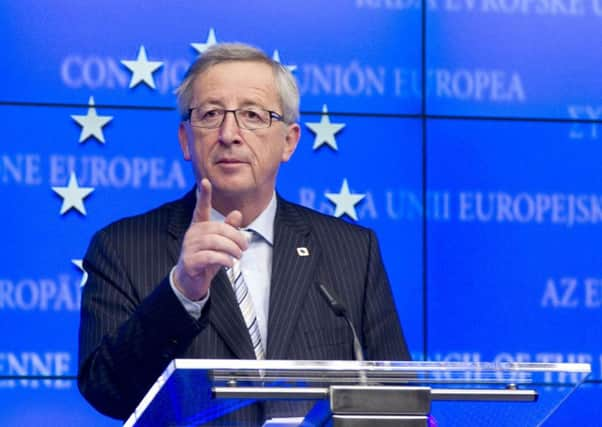Ted Bromund: Brexit is a backlash about democracy


For a while, we were inundated by stories asserting that Brexit had caused Britain’s economy to collapse. This was a clear case of the wish being father to the thought, and those stories have now dried up and blown away, rather like Project Fear itself.
But in the place of economic panic has come a more enduring myth: that Brexit was caused by a backlash against globalisation. Just one example: this month’s issue of Money magazine (the American equivalent of Moneywise) led an article about investing overseas by stating baldly that “Globalisation is under attack. In June, Brits voted to leave the European Union”.
Advertisement
Hide AdAdvertisement
Hide AdStrangely, no one talked about globalisation’s peril when Scotland almost voted to leave the UK, even though Scotland’s much more closely tied to England than Britain is to the EU. Yet the backlash myth isn’t a lie, exactly. It’s part of a story, one with a distinctly political point.
But first, some facts. The best survey of British opinion is the British Social Attitudes study. And it shows that since 1996, with the marginal exception of a couple of years, a majority of the public either wanted to radically reform the EU or leave it.
In other words, British opinion on the EU has been very stable. The euro crisis made Britain think less of the EU, but the EU came back a bit after that crisis peaked. The spike in immigration – after 1997 from outside Europe, and then after 2004 from Eastern Europe – doesn’t appear to have made the public as a whole think significantly worse of the EU.
The decisive moment for British opinion was actually the ‘Beef War’ of 1996, which popped the EU’s post-Cold War popularity bubble. After that, the EU was always going to be about 50/50 to win a referendum in Britain: its backers would have to convince around a third of the public that the EU had been reformed, or scare them into remaining anyhow.
Advertisement
Hide AdAdvertisement
Hide AdHow does this have anything to do with globalisation? The big shifts in British opinion on the EU aren’t connected to rebellions against the vaporous concept of globalisation, but to very specific, and highly political, controversies in Britain and the EU. What a shock: Events matter.
Remain lost because, first, Britain has always been more Eurosceptic than other EU members. Then came the Beef War. Finally, Remain couldn’t convince enough people that Cameron had reformed the EU, or scare them sufficiently to vote Remain even though he hadn’t.
What about immigration? Well, scholars Geoffrey Evans and Jonathan Mellon put it well in an article in the Guardian in late 2015: “Actual immigration rates are the key to understanding levels of concern about immigration.” Imagine that: immigration wasn’t controversial because of an ungrounded panic. It was controversial because lots more foreigners were moving to Britain. I suggest that immigration didn’t make the EU unpopular in Britain. The EU was unpopular already. Immigration made the EU matter to people, and thus made it a voting issue, at precisely the moment when the referendum gave the public a vote.
The mistake that Brexit’s American critics – and others – make is to look at all of this, and, to the extent they know about it, to avoid seeing controversial policy choices. All they see is globalisation, a big, amorphous concept that they know they like.
Advertisement
Hide AdAdvertisement
Hide AdBut Britons don’t want to travel less. They don’t want fewer tourists. They aren’t eating less chicken tikka masala. And if they want to buy and sell less in the EU, it’s only because they want to buy and sell more around the world. If that’s not globalisation, I don’t know what is.
So why the fear for globalisation? Because its fans aren’t cheerleading for chicken tikka masala. They want the end of the nation state, a world without borders. That’s not globalisation: it’s merely one highly political and deeply controversial definition of it.
To the true believers, globalisation doesn’t mean you’ll have more choices. It means you have no choice. Jean-Claude Juncker means it when he says that borders are the worst invention ever.
Juncker should remember that democracy has never flourished outside the framework of a nation state. And borders are how we define nation states. You can have lots of the British kind of globalisation in a democratic nation state. In fact, choice and democracy go hand in hand.
Advertisement
Hide AdAdvertisement
Hide AdBut the awkward thing about democracy and the nation state, from the Juncker perspective, is that it gives you the power to say no and make it stick. That’s what the globalisation brigade can’t stand. They don’t care what choice you made. They just resent the fact that you had one.
Ted R. Bromund is a senior research fellow in Anglo-American Relations, based at The Margaret Thatcher Center for Freedom at The Heritage Foundation in Washington.